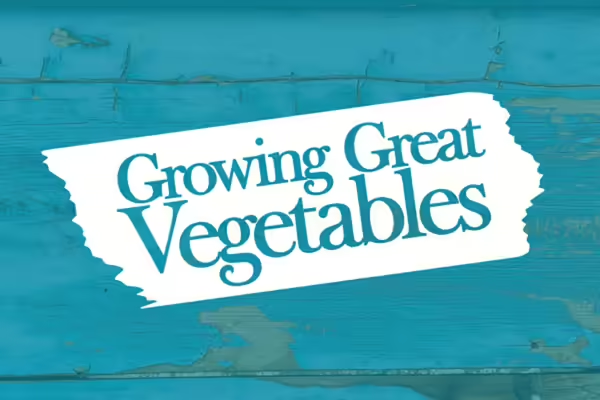
URBANA, Ill. — As gardening continues to gain popularity, it is important to keep the learning growing. Whether it is skills needed for a large backyard garden or a few windowsill and porch pots, sharing the knowledge and how much fun gardening activities with others can be very fulfilling.
Step one is answering to the curiosity of growing plants. From there, whether new to gardening or someone with years of experience but ready to talk plants, register for Growing Great Vegetables, a five-week webinar series from University of Illinois Extension exploring what it takes to grow vegetables from start to harvest.
Participants will log on for weekly online workshops starting March 4. Each session will explore a new topic and give participants the opportunity to engage with Extension horticulture experts. Along the way, attendees will receive emails with more research-based tips and factsheets to supplement learning.
Sessions will be from 6 to 7 p.m. on select Tuesdays. Each class consists of a live 50-minute presentation followed by time for Q&A. Extension horticulture educators Chris Enroth, Jennifer Fishburn, Nicole Flowers-Kimmerle, Ken Johnson, and Sarah Vogel will lead this series.
- Where Will You Garden? | March 4
Build a garden using whatever space is available. Learn about traditional garden plots, raised beds, salad tables, container gardening, growing vertically, and more. - Seed and Plant Choices, Soils, and Fertilizers | March 11
Planning, design, and layout are key elements to successful gardening. Learn about hardiness zones, frost and freeze dates, how to order plants or seeds from a garden catalog or locally, reading and selecting seed packets, and starting plants from seed. We’ll also cover soil testing and amendments, fertilizer, manures, mulch, watering, and weeding. - Cool-Season Vegetables | March 18
Cool-season crops can be grown in spring or fall, each with its own characteristics and potential issues. Learn about some of the different cool-season vegetables that can be grown in Illinois and how to grow and harvest them. - Warm-Season Vegetables | March 25
Warm-season crops grow during the hottest part of the year. This session will cover how to make vegetables such as peppers, tomatoes, squash, and more flourish. - Insects and Diseases | April 1
New and experienced growers alike are challenged by pests, diseases, and disorders of vegetable plants. Learn about insects, diseases, and wildlife pests and how to prevent and manage them. - Bonus: Gardening Q&A Session | April 29
Join Extension experts to get plant and gardening questions answered.
The cost is $10 for the series, and registration is required by Feb. 28 at go.illinois.edu/GrowGreatVegetables. Sessions will be recorded and made available to registered participants if they are unable to attend live.
For questions or if you need a reasonable accommodation to participate, contact Ken Johnson by email at kjohnso@illinois.edu or phone at (217) 243-7424. Early requests are strongly encouraged to allow sufficient time for meeting access needs.
Sources: Ken Johnson and Jennifer Fishburn, horticulture educators, Illinois Extension
Editor: Jenna Braasch, media communications coordinator, Illinois Extension
University of Illinois Extension develops educational programs, extends knowledge, and builds partnerships to support people, communities, and their environments as part of the state's land-grant institution. Extension serves as the leading public outreach effort for University of Illinois Urbana-Champaign and the College of Agricultural, Consumer and Environmental Sciences in all 102 Illinois counties through a network of 27 multi-county units and over 700 staff statewide. Extension’s mission is responsive to eight strategic priorities — community, economy, environment, food and agriculture, health, partnerships, technology and discovery, and workforce excellence — that are served through six program areas — 4-H youth development, agriculture and agribusiness, community and economic development, family and consumer science, integrated health disparities, and natural resources, environment, and energy.